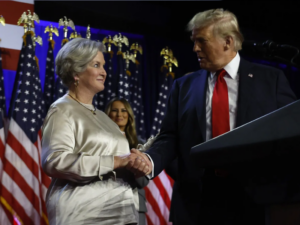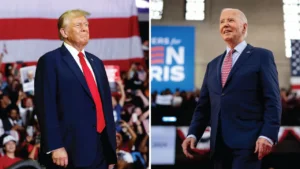The recent U.S. election results are opening up promising opportunities for retirees and savers, as long-term Treasury yields surge in response to the Republican victory. With Donald Trump’s win and Republican control over both the White House and Congress, interest rates on government bonds have spiked, creating low-risk savings options for those prioritizing security and stable income.
The yield on the 10-year Treasury note has climbed to nearly 4.7%, while yields on long-term inflation-protected bonds are approaching 2.3% — the highest rates seen since the 2008 financial crisis. For savers, these rising rates provide a chance to secure attractive returns without exposure to stock market volatility. Investors can access these bonds directly or through mutual funds and ETFs.
The increase in Treasury yields follows a strong market response to the “red wave” election outcome, which raised expectations of higher deficits and inflation under Trump’s administration. The 10-year Treasury yield surged 0.2 percentage points to 4.44% after the election, while inflation-protected TIPS bonds reached a four-month high of 2.25%.
Experts point to the potential for further increases in long-term interest rates, as markets anticipate budgetary changes, tax cuts, and infrastructure spending that may drive up inflation and government borrowing. The LPL Financial team noted a sharp rise in yields due to heightened expectations of economic stimulus and deficit expansion under Trump’s leadership.
In the face of these rising yields, those invested in fixed-rate bonds could face losses, as bond prices generally fall when yields rise. The iShares Core U.S. Aggregate Bond ETF fell by 0.8%, while the Vanguard Extended Duration ETF dropped 4% after the election.
While Treasury yields create opportunities for savers, the increase also poses challenges. Higher yields raise borrowing costs for the U.S. government, adding pressure on the federal budget. This could drive up the already substantial spending on debt servicing, a budget category larger than even defense or Medicare. This situation has raised discussions around alternative fiscal strategies, including modern monetary theory, which advocates financing deficits through money creation.
As interest rates rise, some investors may look to inflation-protected bonds, like TIPS, to help offset the impact of inflation on their long-term returns. With Americans holding roughly $5.1 trillion in bond mutual funds and ETFs, according to the Investment Company Institute, navigating this new rate environment will be crucial for both institutional and individual investors.





